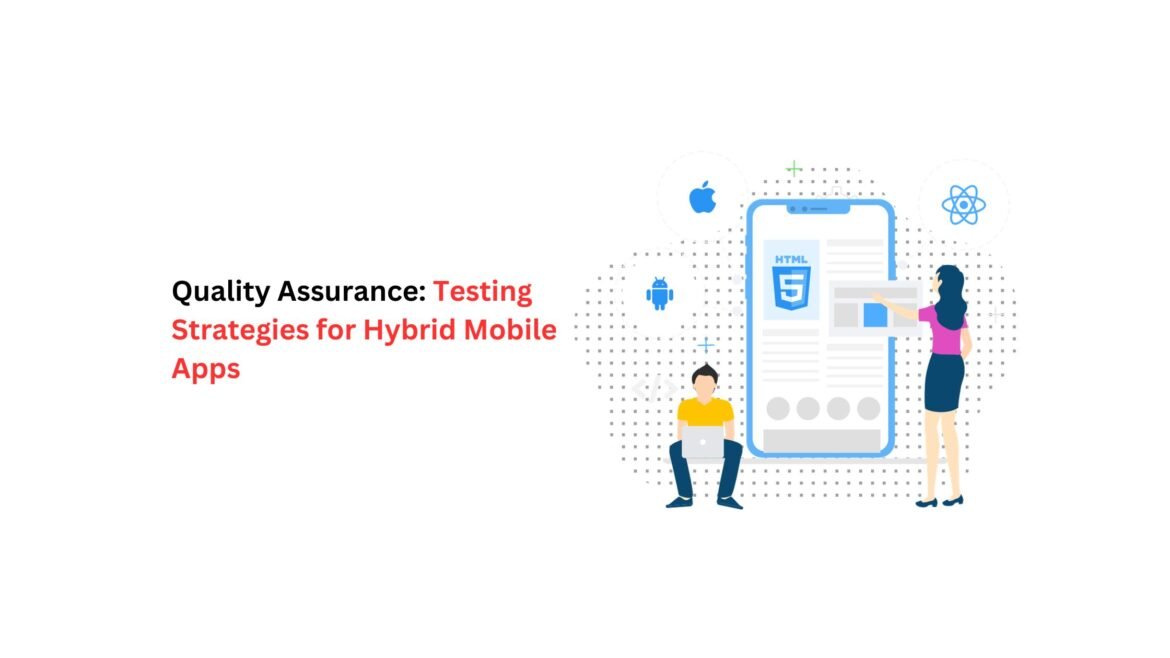In the constantly changing field of mobile app development, hybrid apps have shown to be a flexible option. It offers the best of both worlds by fusing native-like performance with web apps’ cross-platform compatibility.
However, ensuring the quality and reliability of these hybrid mobile apps requires the assistance and expertise of a reliable hybrid app development company. Moreover, it calls for robust testing strategies to make your hybrid app thrive in the market.
In this blog, we’ll explore some unique testing strategies for hybrid mobile apps that can help you deliver a seamless and top-notch user experience.
Hybrid App Development: Testing Strategies
Make a data-driven strategy for testing your hybrid mobile app based on the following parameters.
1. Automation Testing With Predefined Use Cases
Take a more strategic approach to automation testing with predefined use cases, mimicking real-world scenarios. By replicating user journeys, you can identify and rectify potential issues before they affect real users.
App testing with AI-driven test automation tools is a game-changer when testing hybrid mobile apps. With these tools, you can maintain a high level of app quality without investing excessive time and resources while ensuring a reliable and effective testing strategy.
2. App Testing on Various Platforms
Cross-platform compatibility allows hybrid programs to function on both iOS and Android devices. But it can have problems working due to variations in operating systems, screen sizes, and device capabilities.
To guarantee that your hybrid software runs consistently and optimally, it is imperative that you test it on a variety of real devices and emulators. Establish a testing strategy that ensures your hybrid app is rigorously evaluated across various platforms.
This allows you to identify and rectify platform-specific issues, enabling you to reach a broader audience while maintaining a consistent user experience.
3. Testing Apps for Accessibility Issues
It is essential to conduct thorough accessibility testing to make your app accessible to all users, including those with disabilities. Accessibility in mobile apps is not only crucial but also a legal requirement in many regions.
Therefore, hire a reliable hybrid app development company to evaluate your app’s accessibility features beyond standard guidelines. By accessibility testing, you can provide an inclusive and empathetic user experience.
4. Performance Testing Under Unfavorable Conditions
Mobile apps are used in many scenarios, from areas with robust Wi-Fi connections to regions with slow or intermittent internet access. To ensure your hybrid app delivers a consistent performance, it’s essential to conduct performance testing under unfavorable conditions.
Your testing strategy can involve simulating scenarios with poor network connectivity, limited device resources, and high user load. With this, you can assess the app’s behavior under stress and identify potential bottlenecks, optimizing it for challenging situations.
5. Testing to Ensure a High Level of Security
With the increasing number of cyber threats and privacy concerns, security testing is non-negotiable for any mobile app, including hybrid ones. Therefore, you must take a comprehensive approach to security testing that involves threat modeling to identify potential security risks.
You can perform penetration testing to assess the app’s susceptibility to attacks. With a robust app security approach, you can fortify your hybrid app’s security, safeguarding user data and maintaining trust.
Conclusion
Testing hybrid mobile apps effectively requires a strategic and comprehensive approach. Therefore, you can opt for robust hybrid app development services to ensure your app delivers a superior user experience.
Remember, quality assurance is an ongoing process, and implementing these unique testing strategies can make your hybrid app functionality sound. Moreover, you can stay ahead of the curve and maintain your app’s competitiveness in the market.
Also read Technology


